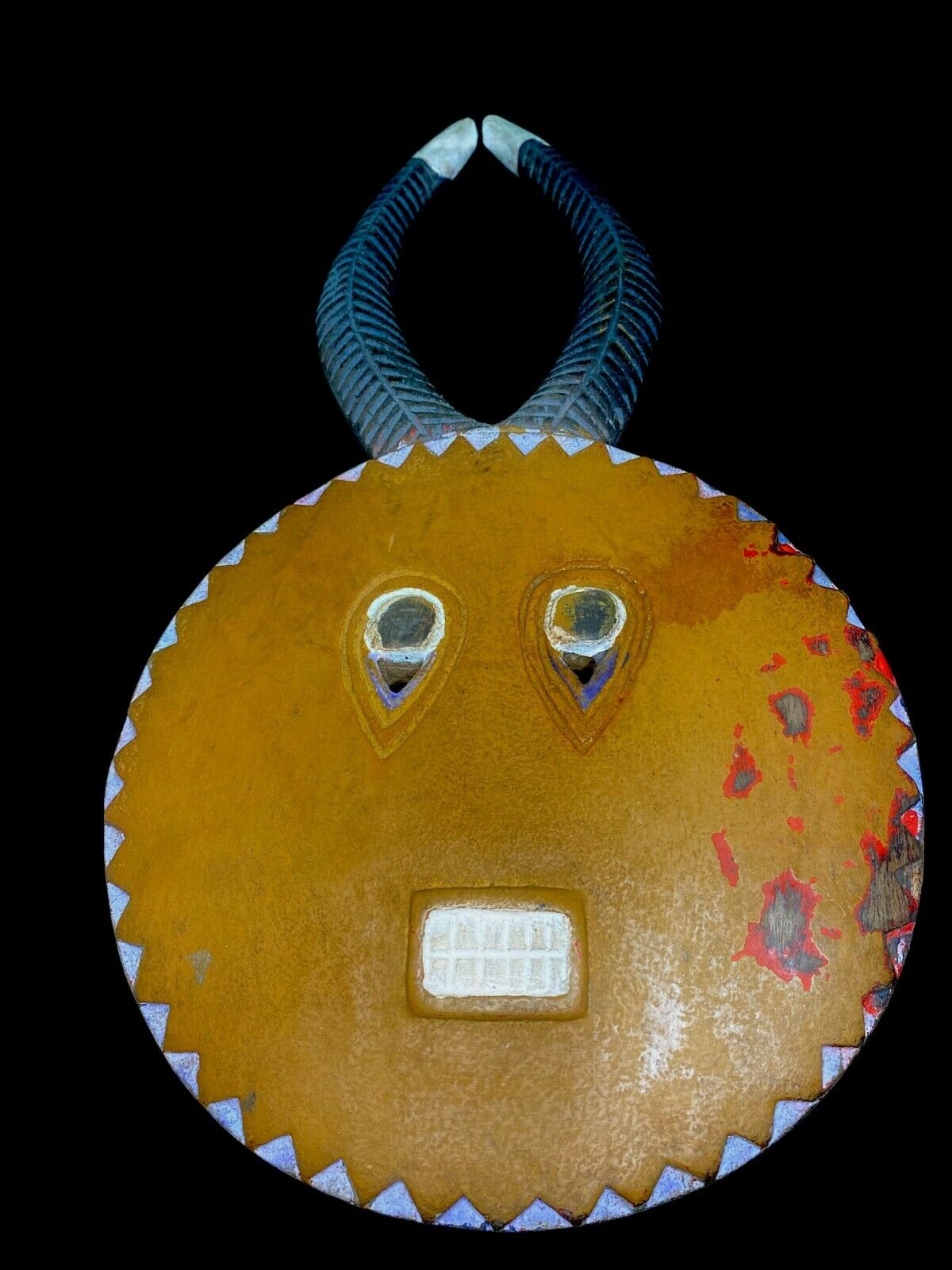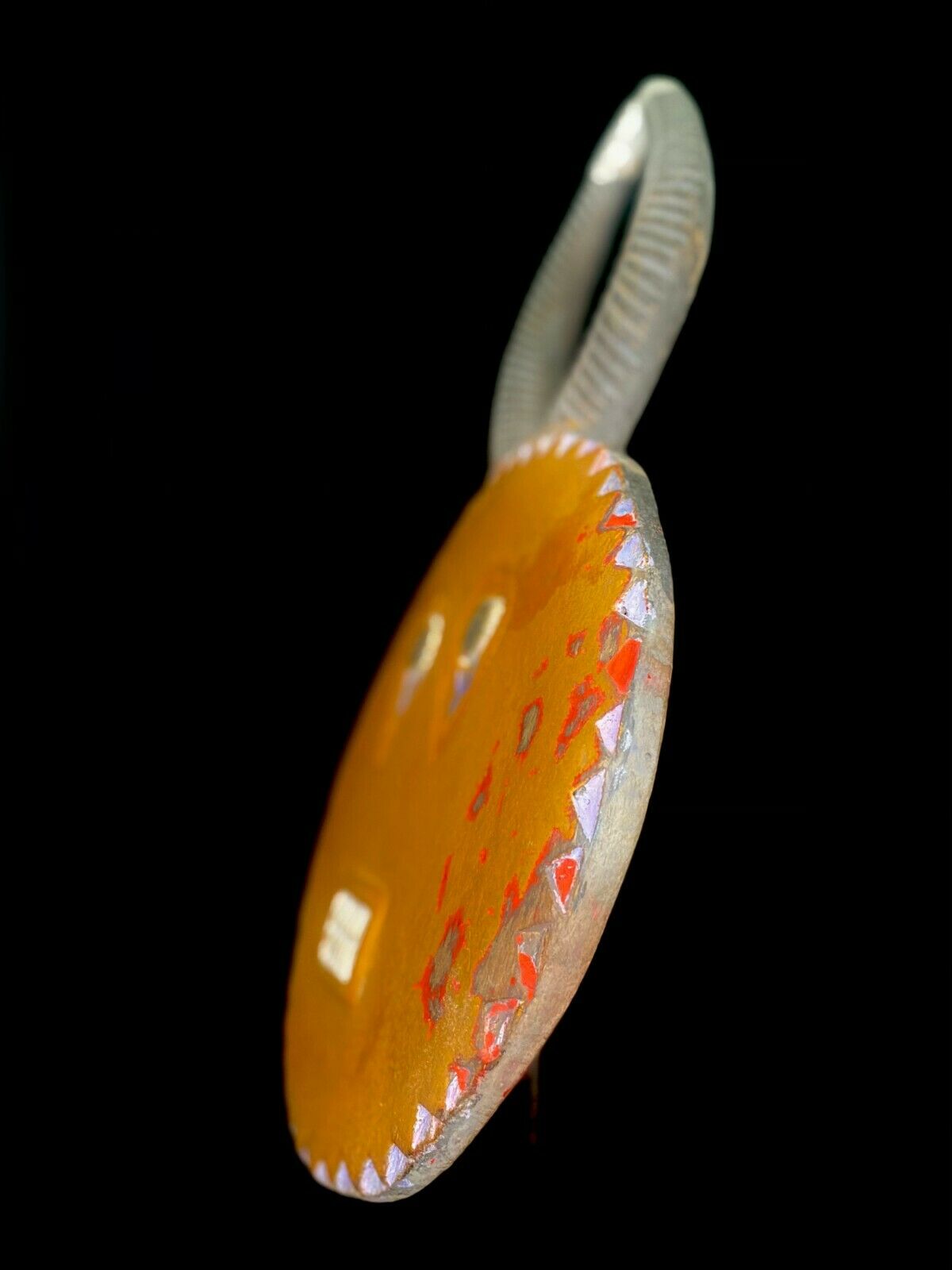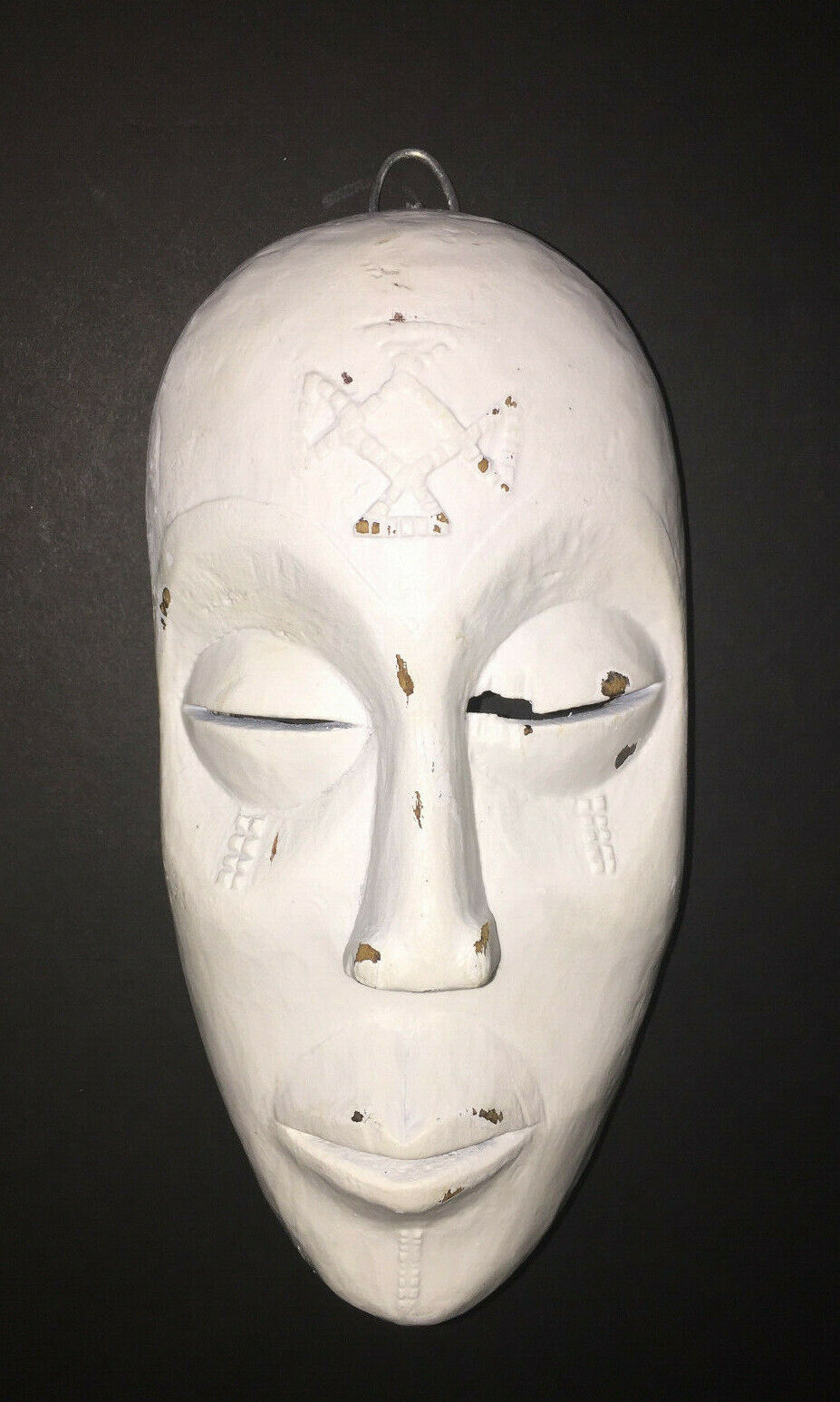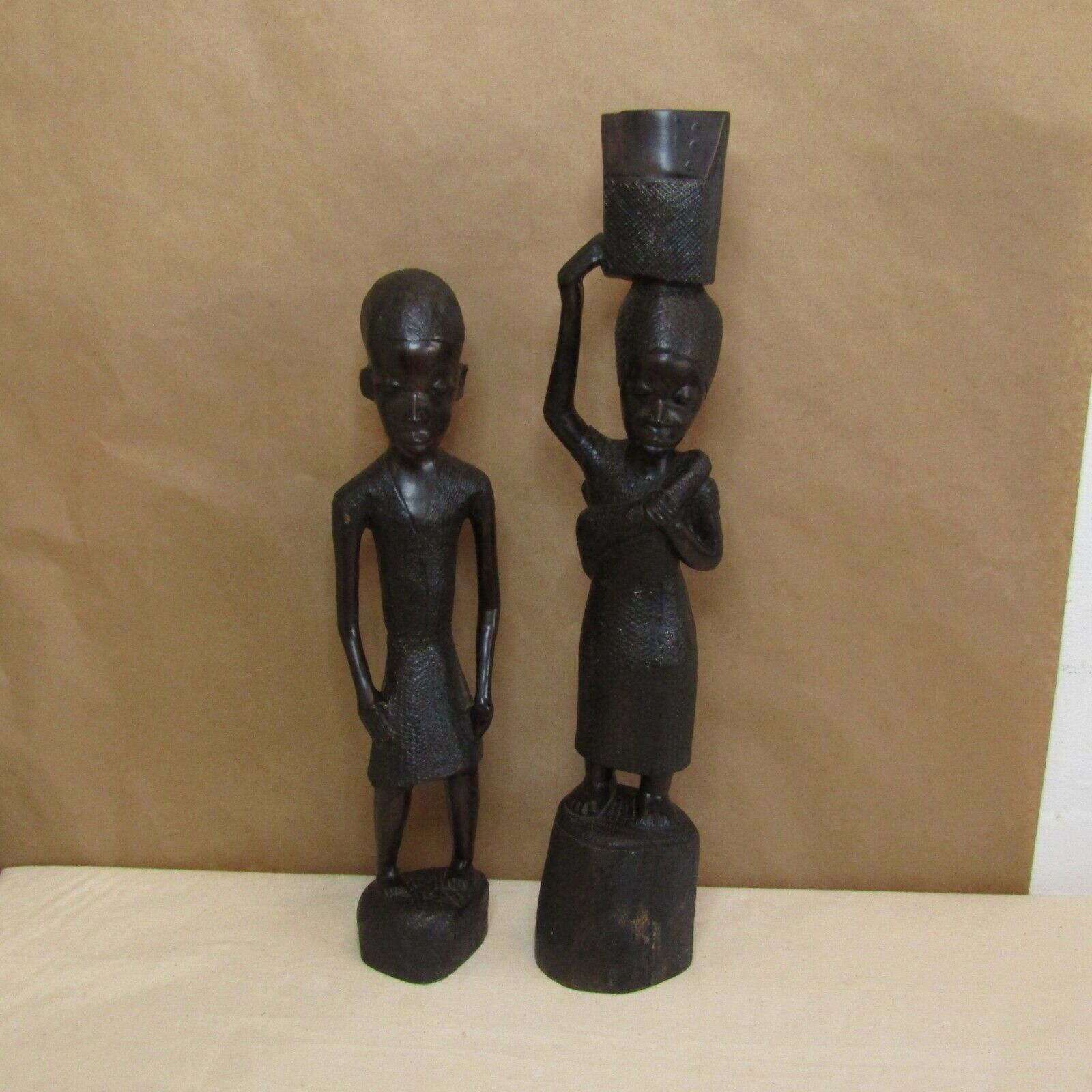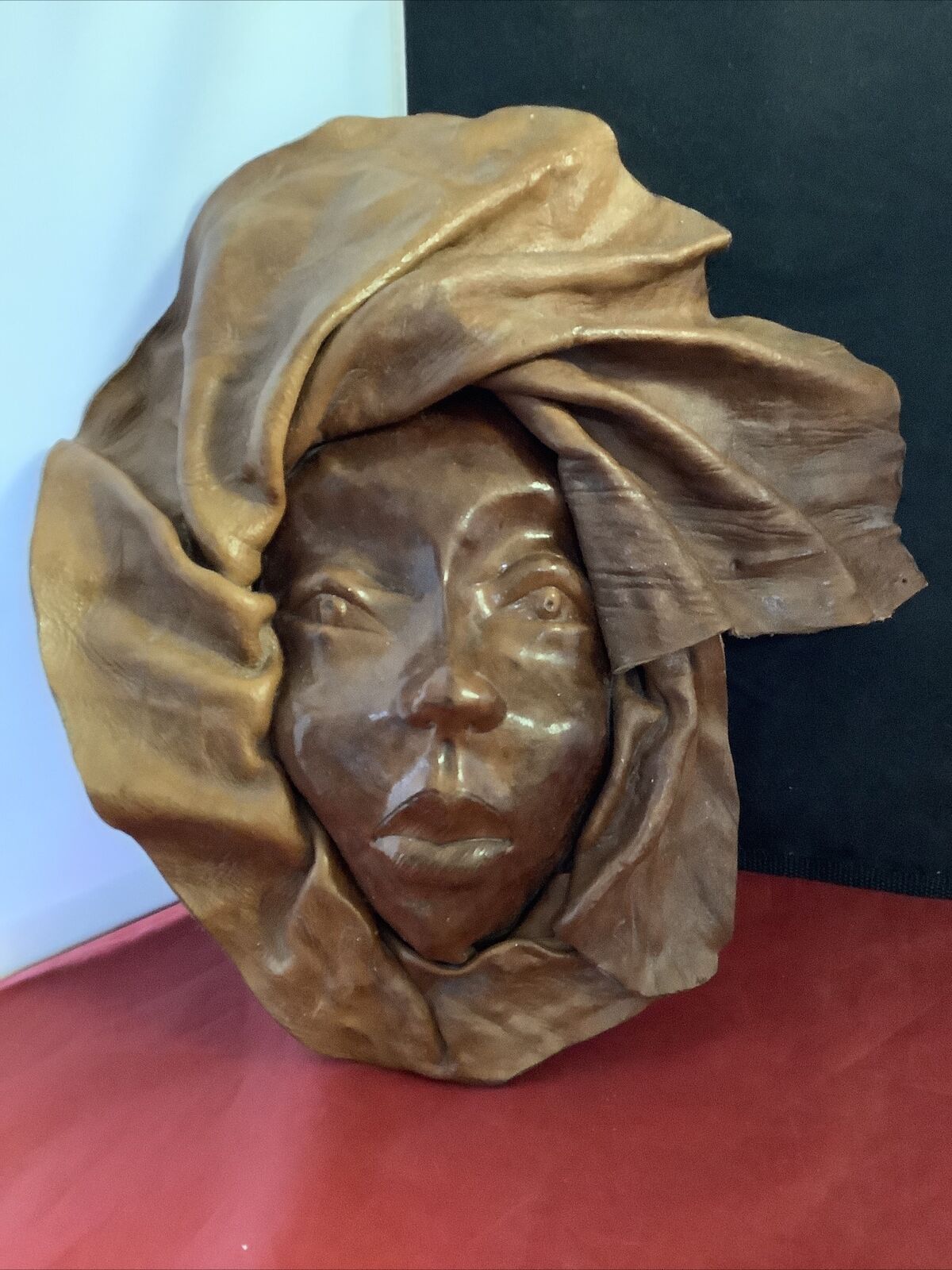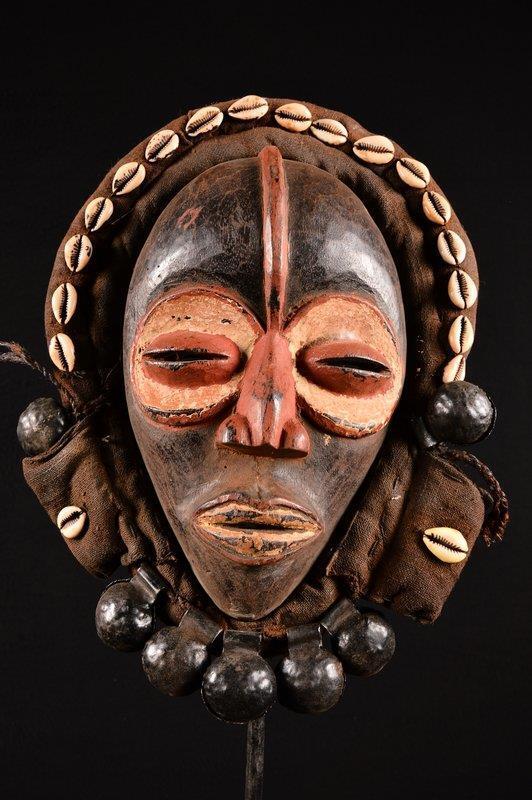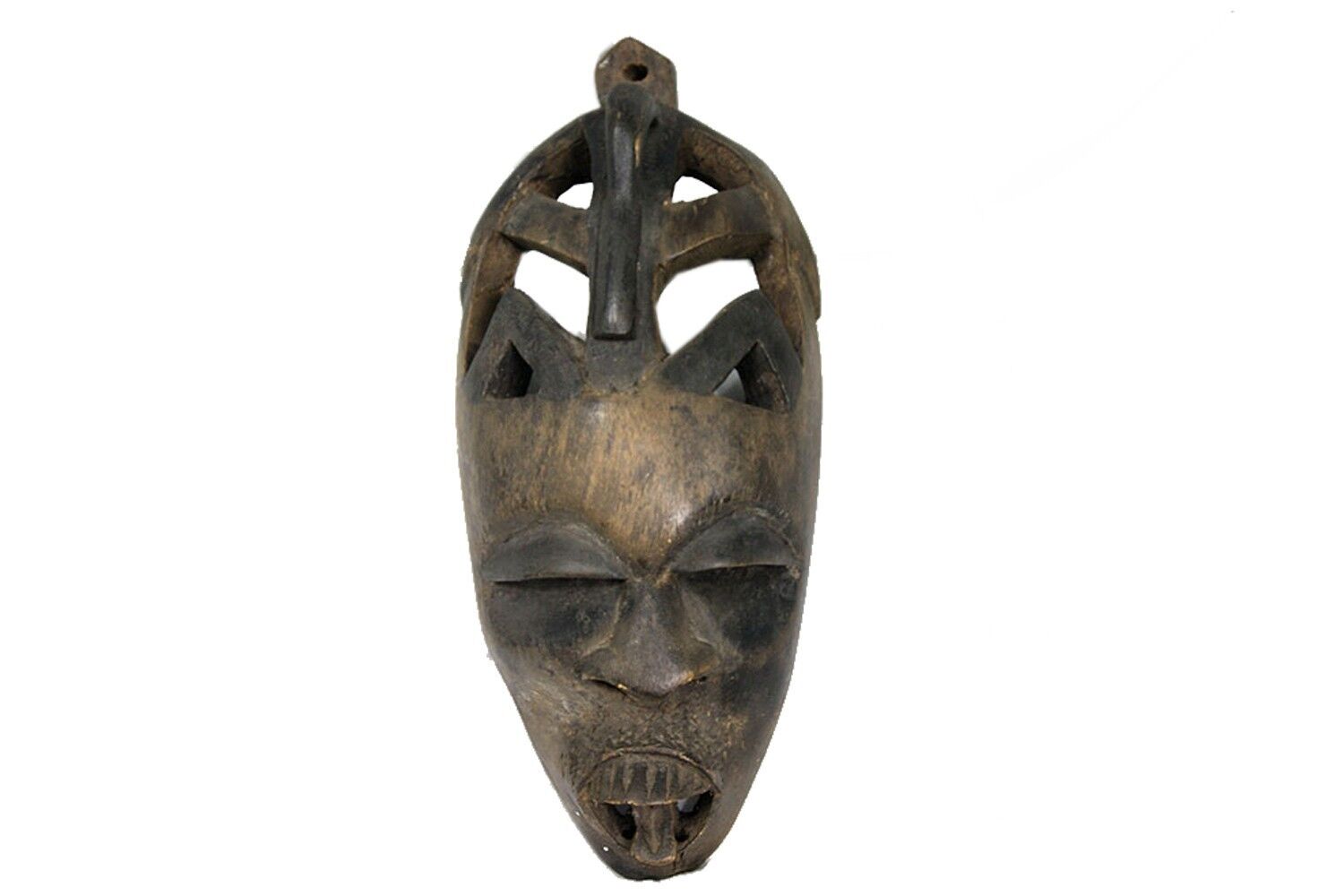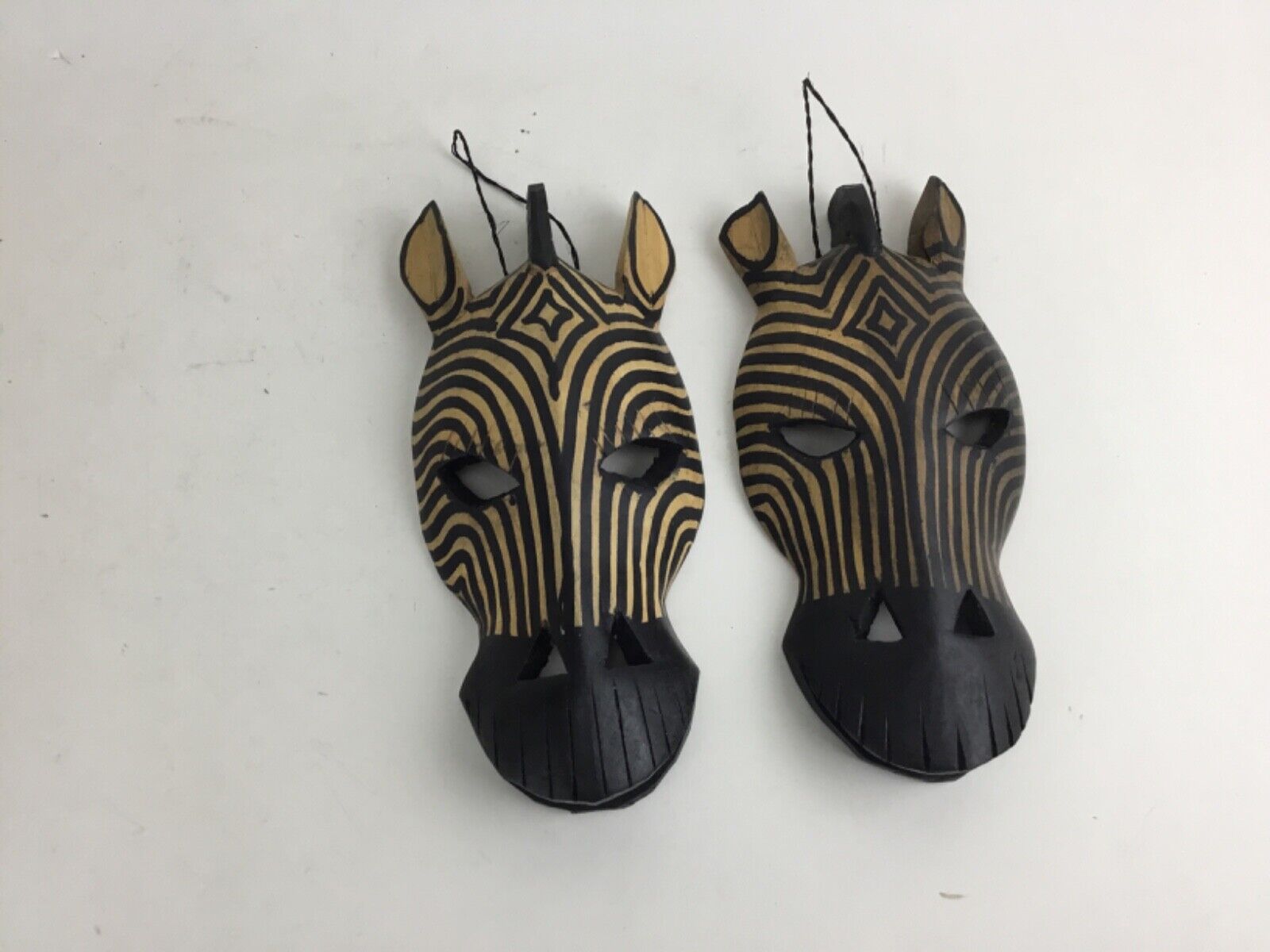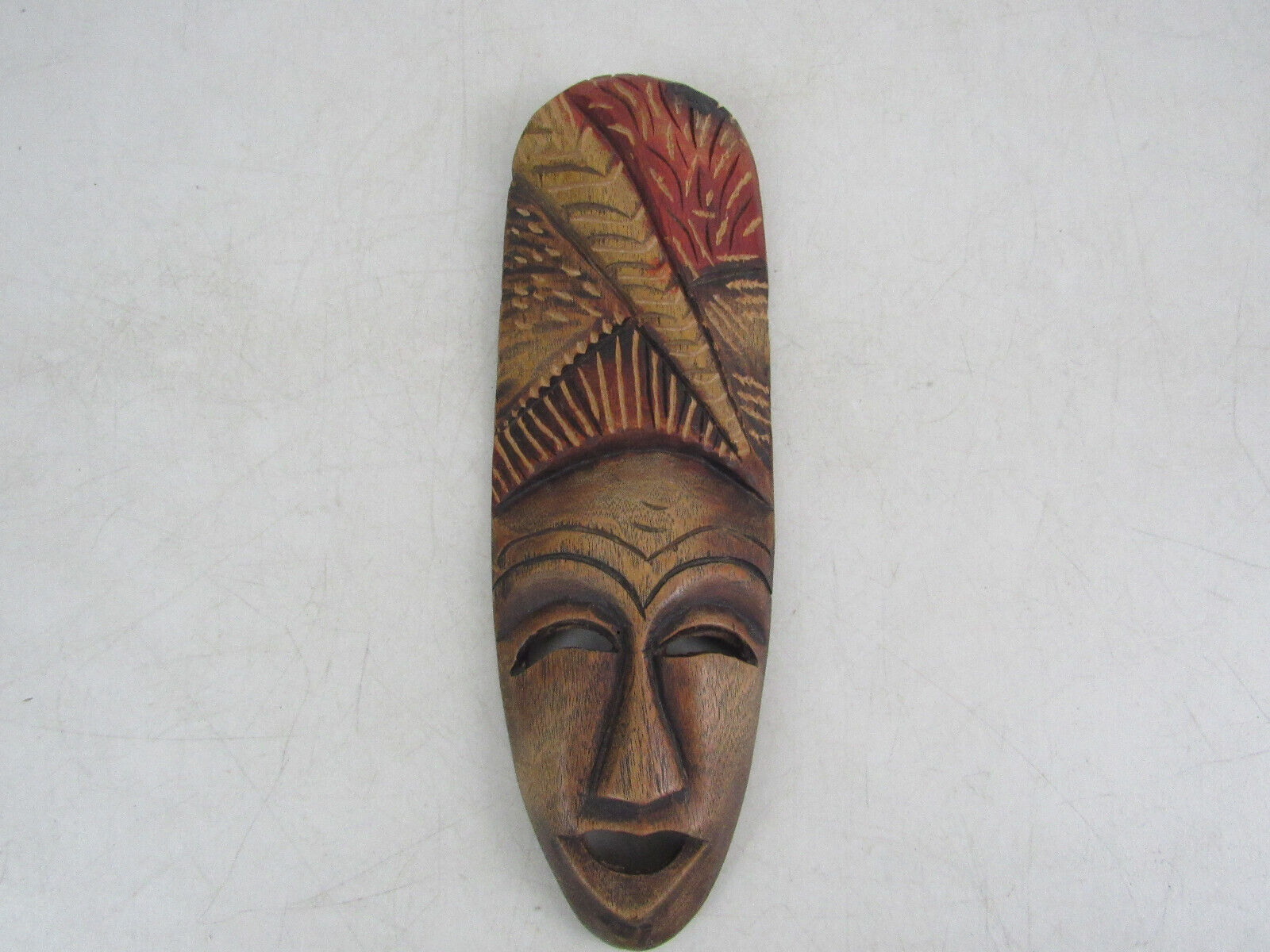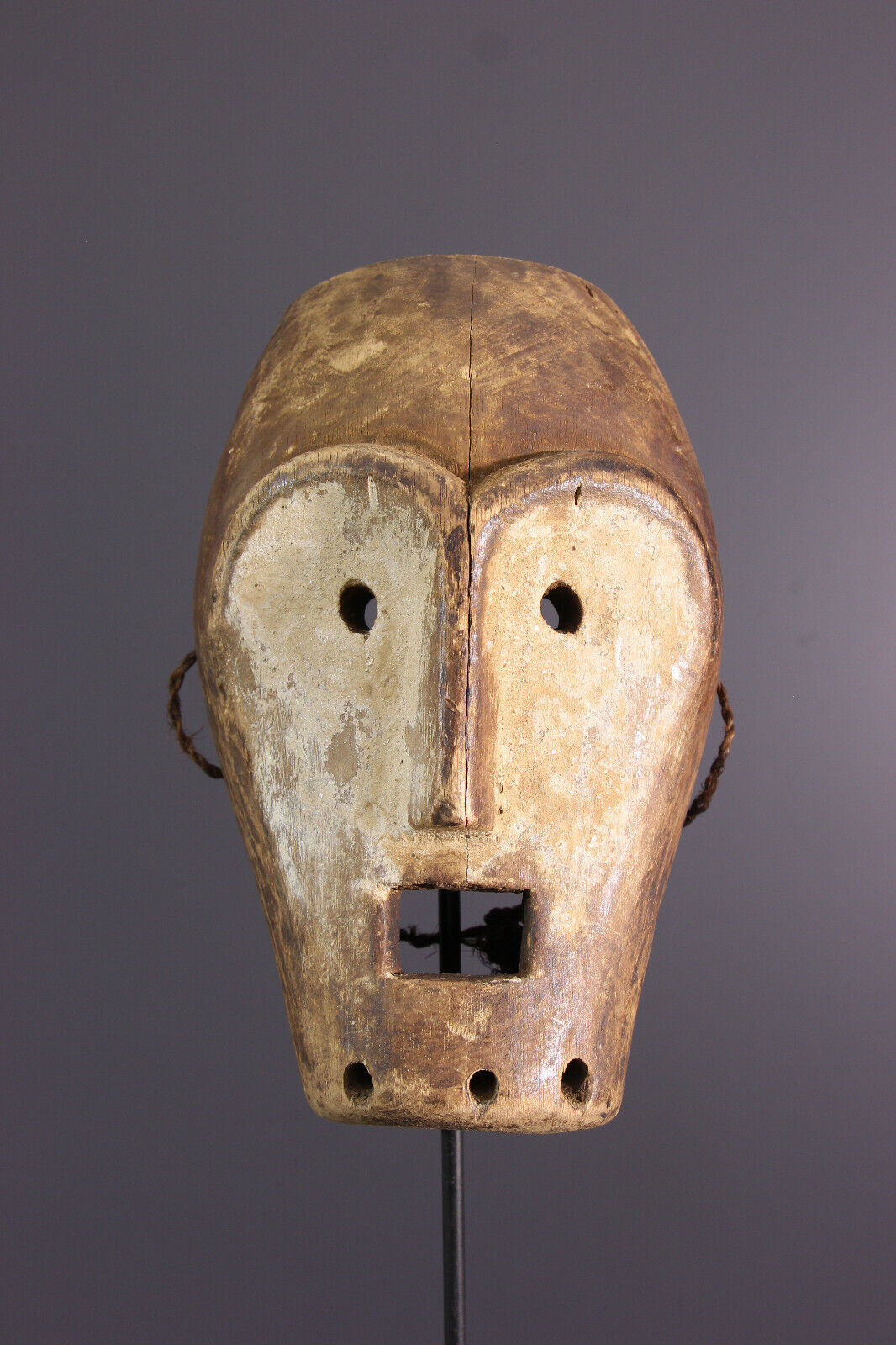-40%
African Goli Horned Mask Akan Tribe Ivory Coast African Mask (2673 - L)
$ 57.55
- Description
- Size Guide
Description
Created withEselt
-
Templates and Image Hosting for eBay Sellers
Africa's best
Created with
Eselt
-
Templates and Image Hosting for eBay Sellers
Created with
Eselt
-
Templates and Image Hosting for eBay Sellers
Hand Carved GURO MASK African Wood Mask
Hand Carved GURO MASK African Wood Mask
The GURO people (GURO: Esikongo, singular: Mwisikongo; also Bakongo, singular: Mukongo are a Bantu ethnic group primarily defined as the speakers of Kikongo (Kongo languages).]
They have lived along the Atlantic coast of Central Africa, in a region that by the 15th century was a centralized and well-organized Kingdom of Congo, but is now a part of three countries. Their highest concentrations are found south of Pointe-Noire in the Republic of the Congo, southwest of Pool Malebo and west of the Kwango River in the Democratic Republic of the Congo, north of Luanda, Angola and southwest Gabon.They are the largest ethnic group in the Democratic Republic of Congo, and one of the major ethnic groups in the other two countries they are found in. In 1975, the Congo population was reported as 4,040,000. [5]
The Congo people were among the earliest sub-Saharan Africans to welcome Portuguese traders in 1483 CE, and began converting to Catholicism in the late 15th century. They were among the first to protest slavery in letters to the King of Portugal in the 1510s and 1520s, then succumbed to the demands for slaves from the Portuguese through the 16th century. The Congo people were a part of the major slave raiding, capture and export trade of African slaves to the European colonial interests in 17th and 18th century. The slave raids, colonial wars and the 19th-century Scramble for Africa split the Congo people into Portuguese, Belgian and French parts. In the early 20th century, they became one of the most active ethnic groups in the efforts to decolonize Africa, helping liberate the three nations to self governance. They now occupy influential positions in the politics, administration and business operations in the three countries they are most found in. [4]
The origin of the name Kongo is unclear, and several theories have been proposed.According to the colonial era scholar Samuel Nelson, the term Kongo is possibly derived from a local verb for gathering or assembly.According to Alisa LaGamma, the root may be from the regional word Nkongo which means "hunter" in the context of someone adventurous and heroic. Douglas Harper states that the term means "mountains" in a Bantu language, which the Congo river flows down from.]
The Kongo people have been referred to by various names in the colonial French, Belgian and Portuguese literature, names such as Esikongo (singular Mwisikongo), Mucicongo, Mesikongo, Madcongo and Moxicongo. Christian missionaries, particularly in the Caribbean, originally applied the term Bafiote (singular M (a) fiote) to the slaves from the Vili or Fiote coastal Kongo people, but later this term was used to refer to any "black man" in Cuba, St Lucia and other colonial era Islands ruled by one of the European colonial interests. The group is identified largely by speaking a cluster of mutually intelligible dialects rather than by large continuities in their history or even in culture. The term “Congo” was more widely deployed to identify Kikongo-speaking people enslaved in the Americas.]
Since the early twentieth century, Bakongo (singular Mkongo or Mukongo) has been increasingly used, especially in areas north of the Congo river, to refer to the Kikongo-speaking community, or more broadly to speakers of the closely related Kongo languages. This convention is based on the Bantu languages, to which Kongo language belongs. The prefix "mu-" and "ba-" refer to "people", singular and plural respectively.]
s
SOLD WITHOUT THE STEND
SEND BY DHL
height- 47 CM
width- 28 CM
Created with
Eselt
-
Templates and Image Hosting for eBay Sellers
Payment
Shipping
We ship all our products only via DHL fast shipping (7 days)
Created with
Eselt
-
Templates and Image Hosting for eBay Sellers
